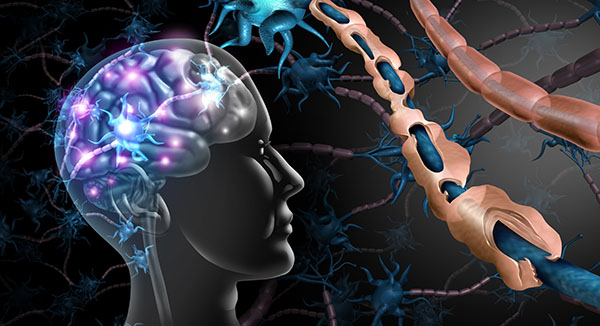The hidden dangers of oversleeping: How too much rest harms cognition, fuels depression, and shortens life
05/16/2025 / By Lance D Johnson

For centuries, sleep has been revered as the ultimate restorative process—a nightly reset for the mind and body. But what happens when too much of this “good thing” becomes a silent saboteur? Emerging research reveals that oversleeping—defined as nine or more hours per night—may be just as harmful as sleep deprivation, particularly for those battling depression. A groundbreaking study from the University of Texas Health Science Center exposes a troubling link between excessive sleep, cognitive decline, and heightened depressive symptoms, challenging the myth that more sleep is always better.
Key points:
- Oversleeping (?9 hours/night) is tied to worse cognitive performance, especially in memory, problem-solving, and executive function.
- Depressed individuals face amplified risks, with long sleepers reporting more severe symptoms—regardless of antidepressant use.
- The “U-shaped” sleep phenomenon shows both too little and too much sleep correlate with cognitive impairment, inflammation, and higher mortality.
- Oversleeping is linked to obesity, diabetes, heart disease, and a 40-50% increased risk of early death—surpassing even the dangers of sleep deprivation.
- Historical sleep patterns (7-8 hours) align with optimal health, while modern disruptions like artificial light and erratic schedules fuel dysfunction.
The cognitive cost of excessive sleep
The Framingham Heart Study, a decades-long project tracking health trends, analyzed 1,853 participants free of dementia or stroke. Researchers found that long sleepers suffered significant cognitive deficits, particularly in visuospatial skills and memory. “The more you sleep, the worse you feel,” warns sleep specialist Michelle Drerup. This paradox is especially pronounced in depressed individuals, whose brains may use extended sleep as a form of escapism, exacerbating mental fog.
Depression and sleep share a vicious cycle: 90% of depressed patients report sleep disturbances, while oversleeping itself can deepen depressive symptoms. The study’s lead author, Vanessa Young, notes, “Sleep may be a modifiable risk for cognitive decline in people with depression.” Yet mainstream medicine often overlooks this, prescribing antidepressants that further disrupt sleep architecture—some causing insomnia, others inducing sedation.
From heart attacks to inflammation: The bodily toll
While sleep deprivation’s risks are well-documented, oversleeping is an underrecognized threat with dire consequences. Research reveals a U-shaped mortality curve, with both short and long sleepers facing a 40-50% higher risk of early death, as noted by Emory University’s Dr. Arshed Quyyumi. The American Heart Association warns that excessive sleep—often ?9 hours nightly—correlates with elevated cardiovascular events, mirroring the 79% higher heart disease risk seen in poor-quality sleepers. Even Daylight Savings Time, a disruptor of circadian biology, exacerbates the issue, spiking heart attacks by 70% post-time change due to misaligned sleep-wake cycles.
Beyond the heart, oversleeping fuels systemic inflammation, with studies linking prolonged sleep to elevated CRP, IL-6, and TNF-alpha—markers that accelerate diabetes, stroke, and neurodegeneration. For women, sleeping ?5 hours nightly increases stroke risk eight-fold, yet root causes like sleep hygiene are often ignored in favor of pharmaceutical interventions. The takeaway? Both extremes of sleep duration are metabolic time bombs, demanding urgent attention to circadian alignment, sleep quality, and policy reforms—starting with abolishing Daylight Savings Time.
Reclaiming natural rhythms
Humans evolved to sleep 7-8 hours, synced with sunlight. Modern life—flooded with screens, caffeine, and processed foods—has derailed this balance. The solution? Return to ancestral habits:
- Ditch Daylight Savings: An outdated practice linked to heart attacks.
- Avoid late-night eating: Non-Paleo foods disrupt sleep quality.
- Limit caffeine: It lingers in the body for 24+ hours.
- Morning sunlight exposure: Resets circadian rhythms naturally.
As sleep scientist Sudha Seshadri warns, “Long sleep duration was associated with poorer global cognition.” The evidence is clear: Oversleeping isn’t restorative—it’s a red flag for systemic dysfunction. In a world obsessed with “wellness,” it’s time to confront the truth: More sleep isn’t always better. Balance is survival.
Sources include:
Submit a correction >>
Tagged Under:
Alzheimer's, Antidepressants, brain health, circadian rhythm, cognitive decline, daylight savings, depression, diabetes, Framingham Heart Study, heart disease, inflammation, longevity, mental health, mortality, natural health, obesity, oversleeping, sleep deprivation, sleep disorders, stroke
This article may contain statements that reflect the opinion of the author
RECENT NEWS & ARTICLES
HealthScience.News is a fact-based public education website published by Health Science News Features, LLC.
All content copyright © 2018 by Health Science News Features, LLC.
Contact Us with Tips or Corrections
All trademarks, registered trademarks and servicemarks mentioned on this site are the property of their respective owners.




















